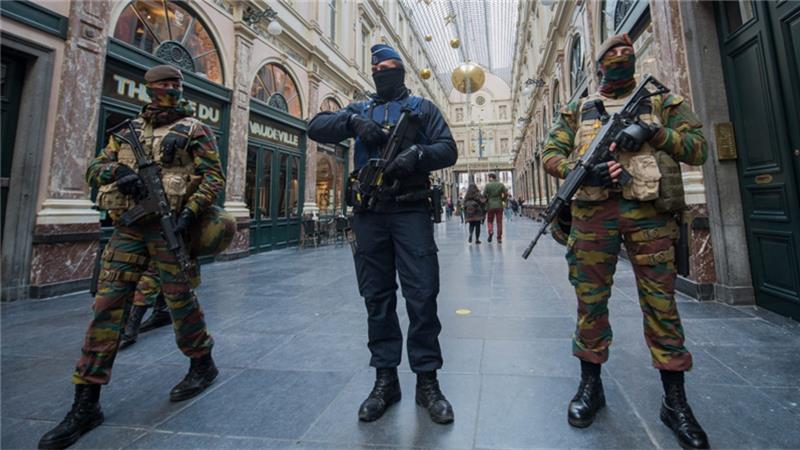Can There Be A European Solution to The Middle Eastern Problem?

NEW DELHI: The current crisis has led to the resurgence of ‘right’ in many European countries to tap the growing angst and frustration of locals. This will be very problematic in the longer run. The conservative, “us” and “them” kind of politics of the right will mean more trouble for the already troubled population.
European Council President Donald Tusk has called upon the global community to show solidarity regarding the refugee crisis and recognize it is a “global crisis”. The prevailing crisis has many dimensions and needs a holistic assessment. To put things into perspective, let us go back to the recent bombings in Belgium, a symbolically important city of Europe.
Some people will be quick to point out that the attack was a direct consequence of the huge refugee influx in Europe. But is it that simple? Before I try to critically analyze this argument, let me contextualize things. Why is Europe so important in this crisis? Why is a continent with “modern functioning democracies” affected with a crisis sparked by “traditional, dysfunctional monarchies?” The two parts of the world might be very distant ideologically, but are in close proximity to each other, thanks to the Mediterranean Sea.
Taking holistic view
The overall situation in Europe should not be seen in isolation. The effect of this crisis is multiplied manifolds because of the current economic slowdown. Locals have become suspicious of the “other”.
So when refugees reach the shores of Greece, it is not simply seen as a bunch of people needing help; they are perceived to be competitors of the locals for jobs. This has led to distrust in governments all across the continent. There is policy paralysis: the so called European Union is far from being unified. Some countries welcome refugees, others wire their borders; some give them temporary shelter; others simply deport them.
The situation is indeed alarming. This has led to the resurgence of ‘right’ in many such countries to tap the growing angst and frustration of locals. This will be very problematic in the longer run. The conservative, “us” and “them” kind of politics of the right will mean more trouble for the already troubled population.
The future looks bleak with the global economy slowing down coupled with the ever increasing hold of Daesh in parts of West Asia( I purposefully refrain it from calling Islamic State. Its acts are completely un-Islamic.)
Let me now return to the recent terror attacks in Belgium. It is too simplistic to call it a consequence of the refugee policy of Europe. In fact it has little to do with refugees in the first place. A closer scrutiny of the situation will lead to the ever increasing problem of ghettoisation of Muslims as the prime reason for such attacks. Discrimination coupled with the idea of “Islam as a religion of terror” has led to frustration among Muslim youths and forced them to pick arms. Therefore the issue of terror attacks and terrorism in Europe should not be intertwined with the refugee crisis. It is saddening and ironic to tag people as terrorists who themselves are running away from terrorism.
Looking for solutions
There should be a long term strategy than a short term arrangement. It is easier said than done. Europe can do little to contain the population coming in from parts of west Asia. It should target the root cause, from my point of view. A two pronged strategy must be adopted: one to contain the Daesh and, two to safeguard the rights of refugees in Europe.
Clearly the current strategy of participating in the US led coalition has miserably failed. A lot of reasons can be attributed to this, the biggest being Russia’s direct and conflicting idea of peace in the region. The situation demands for a composite dialogue between all the stakeholders involved. It is time to rise beyond the traditional oil based politics in west Asia.
The second strategy of safeguarding the rights of refugees requires inclusive and holistic assessment from the policy makers. There is little in terms of international law to support the cause, and too idealistic for countries to follow that. International politics is driven by realism, and expecting too much idealism is a far-fetched proposition.
It is important to separately mention the open door policy of Germany. The country has accommodated more than one million refugees and plans to provide assistance to several thousands in the foreseeable future. Germany feels it is their moral responsibility to undo the wrongs (read: Hitlerism) of the 20th century by setting things right in the 21st century. But how many countries will be driven by such moral authority? Clearly, not many. There is open door policy in one country and a closed (wired) policy in another country, Macedonia. This strategy of extremes is sure to backfire. It is important to find a middle ground, for an equitable distribution of refugee population among all the countries of Europe.
The barb of sovereignty should not undermine the idea of humanism. It is alright to ask for political independence, but not at the expense of social justice. The policies must be driven by a utopian idea of world order, once a symbol of Europe in the 20th century.
(The writer is a student at Delhi University. This article is an Opinion piece that appears on the Young Citizen page).



